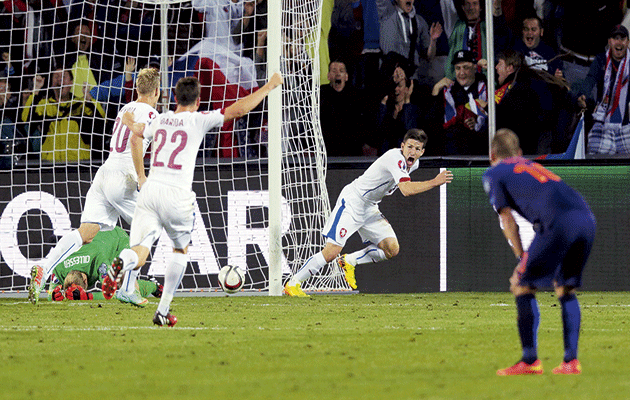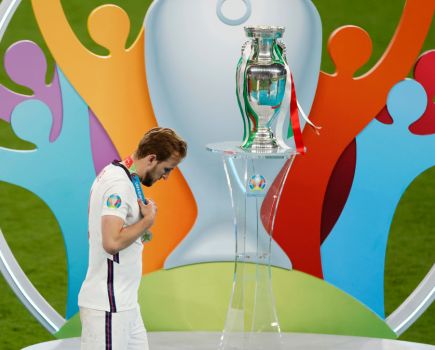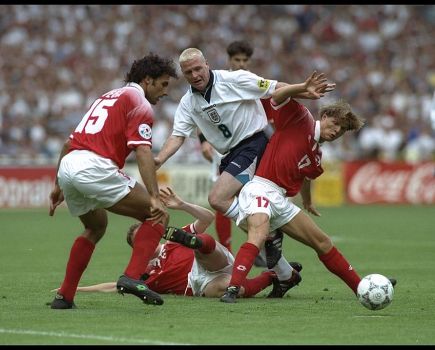Overview
The Czechs made it through to the 2016 finals despite being drawn in a potentially difficult group with Holland, Turkey and Iceland. A team with few well-known stars, coach Pavel Vrba has moulded them into a side that is greater than
the sum of its parts.
Expectations were low at the start of the qualifying campaign but an injury-time winner in their opening game in Prague against Holland galvanised the side and they went on to win their opening four games, while their rivals struggled.
The Czechs have an impressive record at the European Championship, winning (as Czechoslovakia) in 1976, reaching the Final in 1996, the semi-finals in 2004 and the quarter-finals in 2012. They have qualified for every tournament since 1996.
With the exception of veterans Petr Cech and Tomas Rosicky, and highly rated wing-back Pavel Kaderabek, who joined Bundesliga club Hoffenheim last season, the bulk of the squad play in the domestic Czech league.
Left-back David Limbersky has faced calls for him to be dropped after
he crashed his car while drunk, then acknowledged a goal for club side Viktoria Plzen with a drink-driving celebration.
Tactics
While not quite “Total Football”, Vrba favours a patient build-up with players attacking from all areas, including the full-backs Kaderabek and Limbersky. Vrba has not been afraid to change his side as he searches for an alternative to the often-injured Rosicky.
Player Profile
Milan Skoda

In a land where fairy tales are an important part of the culture, Skoda’s remarkable rise from laughing stock to national hero seems somehow appropriate.
Little more than two years ago, the 6ft 3in striker was in such poor form that Miroslav Koubek, then coach at struggling Slavia Prague, switched him to central defence. He started a league game there in October 2013 against reigning champions Viktoria Plzen and, surprisingly, the switch worked. With Skoda at the back, Slavia held Plzen to a 1-1 draw and kept clean sheets in their next three games.
“Skoda is, for me, a cornerstone of our defence,” Koubek told the media.
Skoda went along with the plan but made it clear that striker remained his preferred position. But after Koubek’s dismissal, new boss Alex Pastoor continued to use him in his back line until the end of the 2013-14 season.
Skoda had in fact begun his career at the back, with Slavia’s neighbours Bohemians 1905, and it wasn’t until 2007 that Zbynek Busta converted him into a striker.
It was only following the appointment of Miroslav Beranek as Slavia coach in the summer of 2014 that Skoda was restored to the attack – and with dramatic results. Seizing his chance, he scored five times in the first four games of the season, but, typically unassuming, he credited the transformation only to “good fortune”.
Using the same skills that make him an effective defender – strength in the air and good reading of the game – Skoda ended the season with 19 goals, challenging Sparta Prague’s David Lafata as the league’s top scorer until the final day. That newfound ability led to Slavia reportedly turning down an offer from a Turkish club of around €700,000.
Aged 29, Skoda received his first international call-up in June this year and appeared as a late substitute in a 2-1 loss to Iceland. Then, in September, when a goal down to Kazakhstan in a vital qualifier, coach Pavel Vrba sent Skoda on at half-time in place of an ineffective Lafata.
Sensationally, he scored twice to earn a 2-1 win and keep the qualification campaign on track. Three days later, the Czech Republic clinched their place in the finals with a 2-1 win in Latvia – this time with Skoda as the starting striker, and on current form a place in the Euro 2016 squad looks extremely likely.
As well as being the name of the famous Czech carmaker, Skoda’s surname means “a pity” or “a shame” in Czech, making him an easy target for headline writers. These days, the newspapers make more pleasant reading.
Star man
Tomas Rosicky
The Arsenal midfielder is still the main man despite his age (35) and injury problems. Won his 100th cap in June.
Coach
Pavel Vrba
In charge since early 2014 after winning Czech league titles with Viktoria Plzen. A good tactician and man-manager.
By Sam Beckwith






